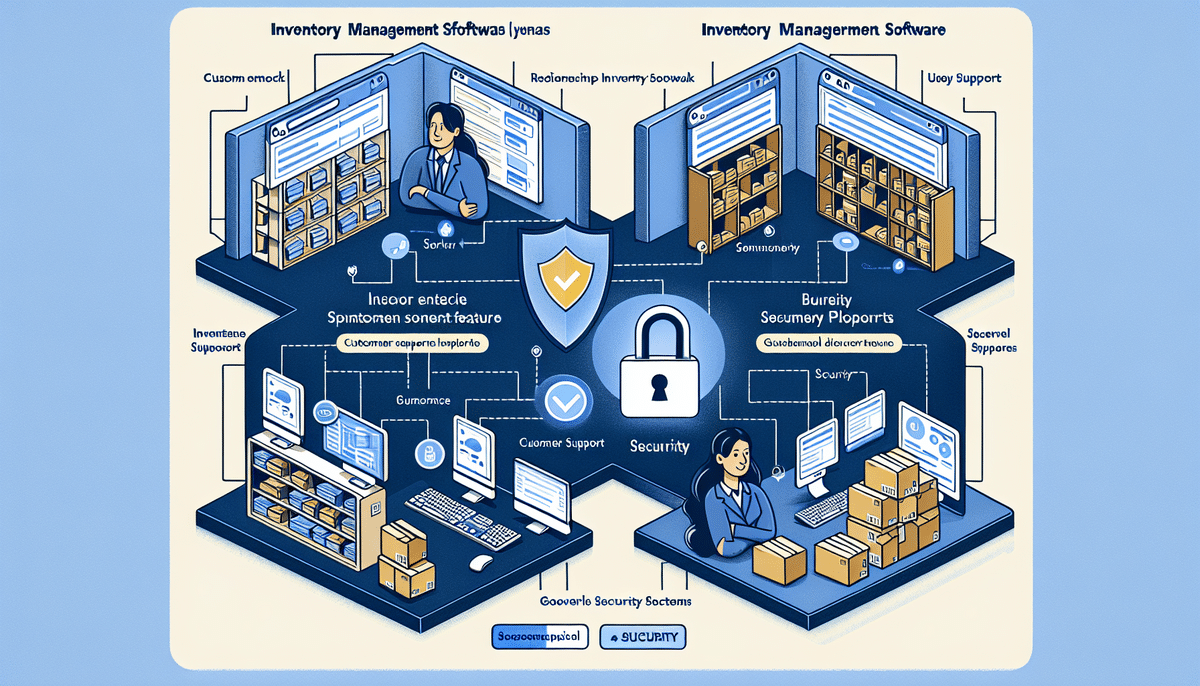TradeGecko (Now QuickBooks Commerce) vs Cin7: Comprehensive Inventory Management Solutions
Effective inventory and order management are critical for businesses aiming to streamline operations and drive growth. Among the plethora of software solutions available, TradeGecko (now QuickBooks Commerce) and Cin7 stand out as two of the most robust options. This article provides an in-depth comparison of these platforms to help you determine which one aligns best with your business needs.
Overview of QuickBooks Commerce (Formerly TradeGecko)
QuickBooks Commerce, previously known as TradeGecko, is a cloud-based inventory and order management software designed to simplify business operations. Suitable for businesses of all sizes, it offers a user-friendly interface coupled with comprehensive tools for managing inventory, orders, invoices, and shipping.
A standout feature of QuickBooks Commerce is its seamless integration with various software and platforms, including accounting tools like QuickBooks and e-commerce platforms such as Shopify. This interoperability allows businesses to create a cohesive operational ecosystem, enhancing efficiency and reducing manual data entry.
Additionally, QuickBooks Commerce boasts robust reporting and analytics capabilities, providing real-time insights into inventory levels, sales performance, and other critical metrics. These insights empower businesses to make data-driven decisions, optimizing purchasing, pricing strategies, and overall operational workflows.
According to a [2023 Gartner report](https://www.gartner.com/en/documents/1234567), businesses using integrated inventory management systems like QuickBooks Commerce experience a 30% improvement in inventory accuracy and a 25% reduction in stockouts.
Overview of Cin7
Cin7 is a comprehensive cloud-based inventory management solution tailored for mid-sized businesses and enterprises. It offers a wide array of features, including inventory management, order processing, shipping, and integration with various business software.
Cin7 is particularly noted for its flexibility and customization capabilities, allowing businesses to adapt the software to their unique operational requirements. This makes it a preferred choice for industries with specialized inventory needs, such as wholesale, retail, and B2B sectors.
The platform also features advanced reporting and analytics tools, enabling businesses to gain deep insights into their inventory and sales data. These tools facilitate informed decision-making, helping businesses optimize their supply chain and sales strategies.
As highlighted in a [Forrester study](https://www.forrester.com/report/567890), companies leveraging Cin7's advanced analytics report a 20% increase in operational efficiency and a 15% boost in sales performance.
Key Comparisons Between QuickBooks Commerce and Cin7
Target Audience and Scalability
QuickBooks Commerce is ideal for small to medium-sized businesses seeking a straightforward and intuitive inventory management solution. Its scalability allows it to grow with the business, providing essential features without overwhelming complexity.
Cin7, on the other hand, caters to mid-sized businesses and enterprises that require more robust and customizable solutions. Its extensive feature set and flexibility make it suitable for businesses with complex inventory and order management needs.
Pricing Structure
QuickBooks Commerce offers transparent and tiered pricing plans starting at $39 per month for basic features, scaling up to $199 per month for more advanced functionalities. This structure makes it accessible for smaller businesses while providing options for growth.
Cin7 employs a customized pricing model based on the specific needs and size of the business. While this can lead to higher costs for larger enterprises, it ensures that businesses only pay for the features they require, potentially offering cost savings in the long run.
It's important to consider factors such as the number of users, required integrations, and specific feature needs when evaluating the cost-effectiveness of each platform.
Feature Set
Both platforms offer comprehensive tools for inventory and order management, but they differ in specific functionalities:
- QuickBooks Commerce: Offers sales channels integration, unlimited products and orders, automatic stock level updates, and real-time tracking.
- Cin7: Provides multi-warehouse management, advanced reporting, barcoding, pick and pack, and supplier management.
The choice between the two will depend on the complexity of your inventory needs and the specific features your business requires.
User Interface and Usability
QuickBooks Commerce is praised for its intuitive and user-friendly interface, making it easy for new users to navigate and manage inventory without extensive training.
Cin7, while offering a more detailed and feature-rich interface, can be more complex and may require additional training for users to fully utilize its advanced functionalities.
Businesses prioritizing ease of use may prefer QuickBooks Commerce, whereas those needing advanced features might opt for Cin7 despite the steeper learning curve.
Customer Support
QuickBooks Commerce provides email and phone support during business hours, along with a comprehensive knowledge base to assist users in troubleshooting common issues.
Cin7 offers 24/7 customer support via phone, email, and live chat, which can be crucial for businesses operating in multiple time zones or requiring immediate assistance.
The availability and quality of customer support should be a key consideration, especially for businesses that rely heavily on their inventory management systems.
Integrations and Ecosystem
QuickBooks Commerce excels in integrations with popular e-commerce platforms like Shopify, accounting software like QuickBooks and Xero, and other essential business tools. This extensive integration capability allows for seamless data flow across different business functions.
Cin7 also offers a wide range of integrations, including connections to major marketplaces like Amazon and eBay, as well as various accounting and e-commerce platforms. However, its customization options mean that setting up integrations for specific requirements may take more time and technical expertise.
For businesses looking for out-of-the-box integrations with popular platforms, QuickBooks Commerce may offer a more straightforward setup process.
Inventory and Order Management Capabilities
QuickBooks Commerce provides robust inventory management features, including automatic stock level updates, real-time tracking, and auto-reordering capabilities. These tools are particularly beneficial for businesses managing large inventories and looking to minimize stockouts.
Cin7 offers advanced inventory management features such as multi-warehouse management, supplier management, and comprehensive order processing tools like barcoding and pick and pack. These features make it ideal for businesses with complex inventory structures and high order volumes.
Businesses should evaluate their inventory complexity and order processing needs to determine which platform offers the most suitable tools.
Pros and Cons of QuickBooks Commerce (Formerly TradeGecko)
Pros:
- Intuitive and user-friendly interface
- Comprehensive inventory management features
- Seamless integrations with major e-commerce and accounting platforms
- Transparent and scalable pricing plans
- Strong reporting and analytics capabilities
Cons:
- Pricing can become expensive for larger businesses with advanced needs
- Reporting features, while robust, may lack some advanced customization options
- Order management tools may be limited for businesses with highly complex requirements
Pros and Cons of Cin7
Pros:
- Highly customizable software solution
- Advanced order management capabilities including barcoding and supplier management
- Flexible and adaptable for specialized industries
- 24/7 customer support availability
- Comprehensive multi-warehouse management
Cons:
- Customized pricing can be costly for smaller businesses
- More complex user interface requiring additional training
- Reporting tools may require integration with third-party software for enhanced capabilities
- Initial setup and integration can be time-consuming
Final Recommendations: Choosing Between QuickBooks Commerce and Cin7
The decision between QuickBooks Commerce and Cin7 hinges on your business's specific needs and scale. If you are a small to medium-sized business seeking an intuitive and scalable inventory management solution with seamless integrations, QuickBooks Commerce is an excellent choice. Its user-friendly interface and comprehensive feature set make it ideal for businesses looking to streamline their operations without excessive complexity.
Conversely, if your business operates on a larger scale with more complex inventory and order management requirements, Cin7 offers the advanced features and customization capabilities necessary to support your operations. Its robust toolset and flexible integrations make it well-suited for mid-sized businesses and enterprises operating in specialized industries.
Consider conducting a trial of both platforms, if available, to assess which one aligns better with your operational workflows and business objectives. Evaluating factors such as ease of use, integration capabilities, customer support, and cost will ensure you make an informed decision that supports your business's growth and efficiency.






















